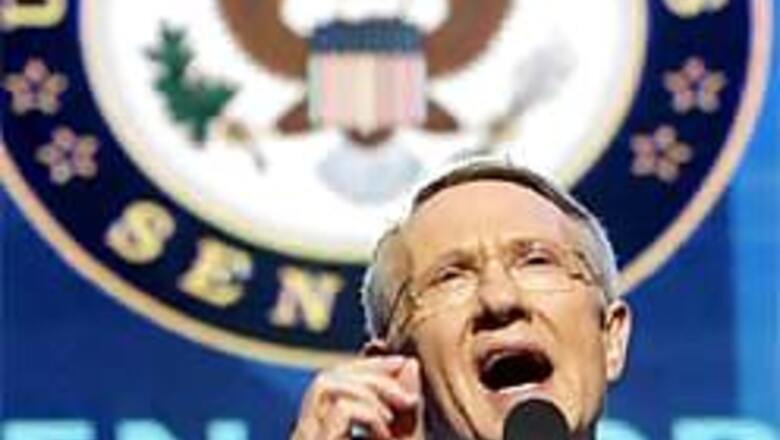
views
Washington: Top US Senate Democrat Harry Reid will work to win approval this year of an accord to end a three-decade ban on nuclear trade with India, which President George W Bush submitted to Congress on Wednesday.
The last hurdle for the deal is Congress, and Reid, the Senate majority leader will try to push the deal through this year, according to his spokesman Jim Manley, despite a truncated legislative schedule and other concerns.
If backed by the Senate and House of Representatives, the fuel and technology deal would help India, the world's largest democracy, help meet rising energy demand without aggravating climate change and open a market worth billions of dollars.
"Civil nuclear cooperation between the United States and India pursuant to the agreement will offer major strategic and economic benefits to both countries," Bush said in a letter transmitting the agreement to Congress.
The agreement has raised international misgivings because India has shunned the Non-Proliferation Treaty meant to stop the spread and production of nuclear weapons as well as a companion international agreement banning nuclear tests.
Critics believe the deal undermines efforts to prevent the spread of nuclear weapons and sets a precedent allowing other nations to seek to buy such technology without submitting to the full range of global nonproliferation safeguards.
Current US law requires that Congress consider the accord for 30 days before a final vote can be taken. But lawmakers are due to leave by the end of September so they can campaign for the Nov. 4 election.
As a result, Congress would probably have to hold a "lame- duck" session after the election. Congressional aides have said there were ways to bypass the 30-day requirement but that Bush, a Republican, would need solid support from Democratic leaders of both houses of Congress.
Reid, a Nevada Democrat, had a "good meeting" with US Secretary of State Condoleezza Rice about the agreement on Wednesday, his spokesman said. "Senator Reid indicated that he would try to find a way to move it forward, and will consult with the (Senate) Foreign Relations Committee and the Republican leadership to try and find a way to do so," Manley said.
Asked if that meant Reid would try to advance the deal this year, he said, "Yes." While the comments suggested the odds of the deal passing before Bush leaves office on Jan. 20 have increased, it is unclear whether House Speaker Nancy Pelosi of California will take a similar view.
On Tuesday, a spokesman for Pelosi, a California Democrat, said she looked forward to reviewing the formal agreement in detail and to consulting on the matter with her colleagues, including House Foreign Affairs Chairman Howard Berman.




















Comments
0 comment